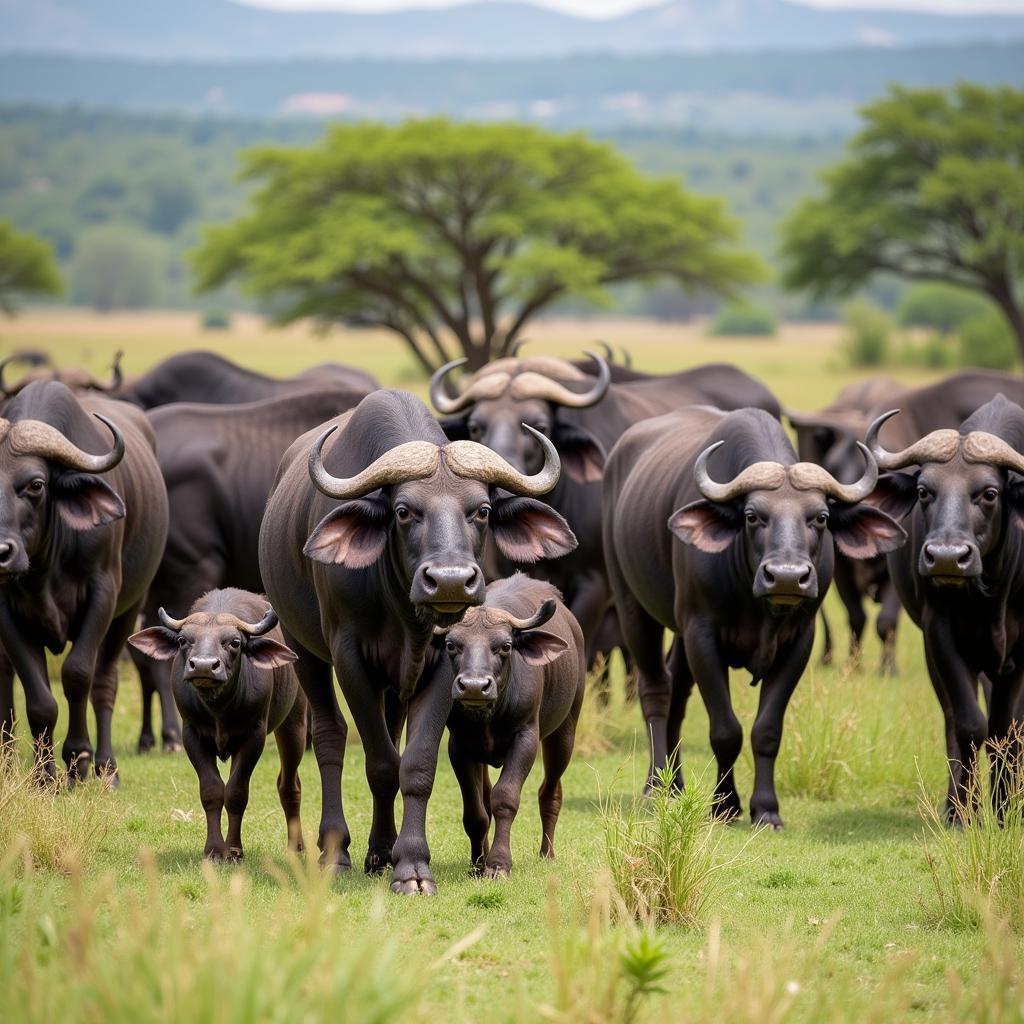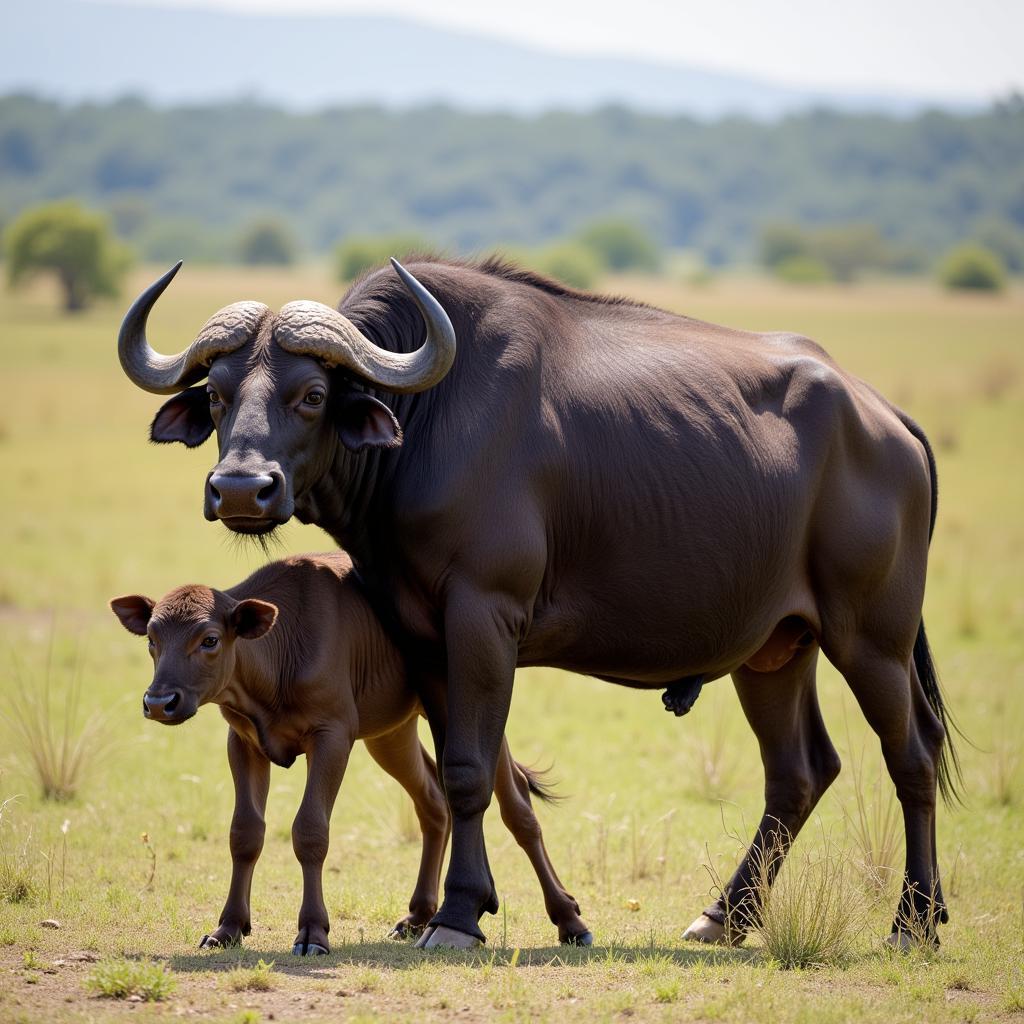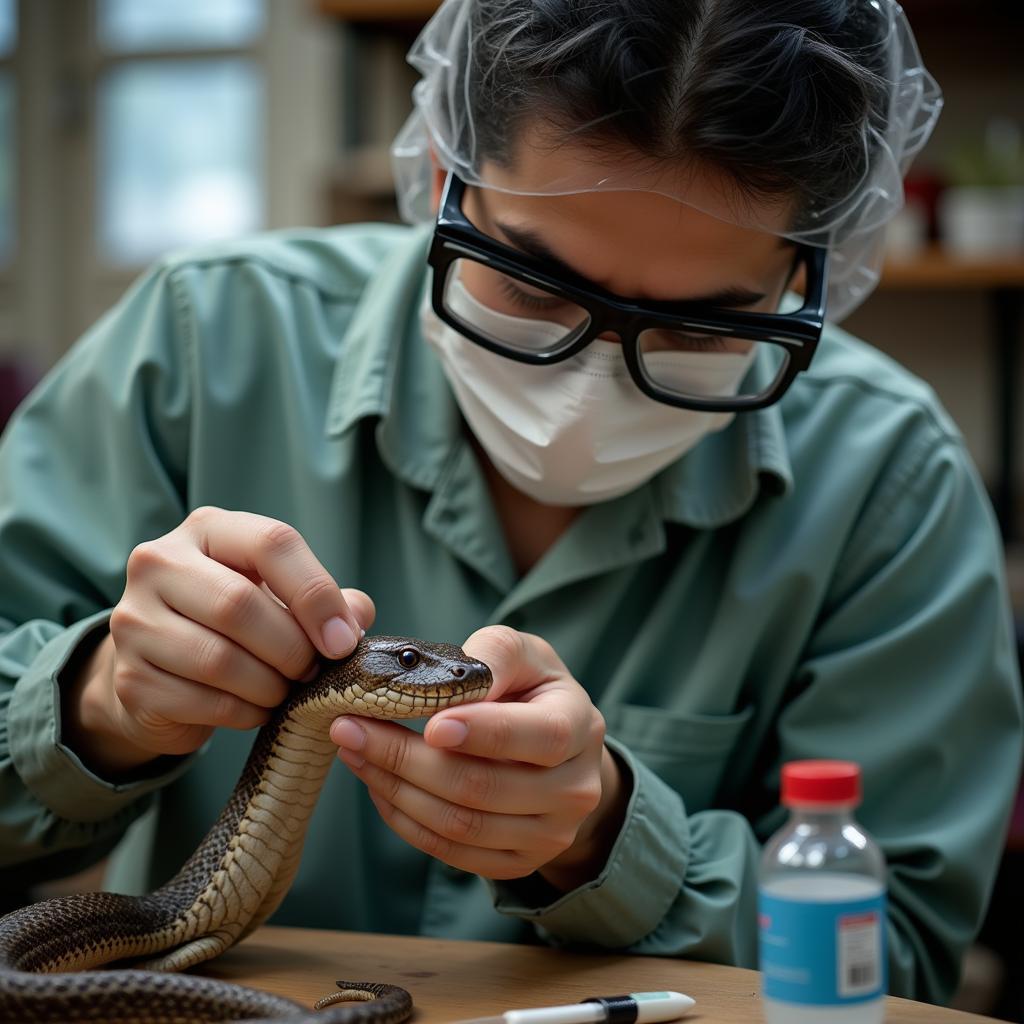The African Buffalo Family: A Force of Nature
The African Buffalo Family, a familiar sight on the savannas and woodlands of sub-Saharan Africa, is an impressive display of power and social complexity. Often found in large herds, these bovines are far more than meets the eye. They are a keystone species, shaping their environment and playing a vital role in the intricate web of African ecosystems.
A Matriarchal Society: The Heart of the African Buffalo Family
At the heart of every African buffalo family lies a fascinating social structure. Unlike many other herding animals, African buffalos live in matriarchal herds. Leading the group is a dominant female, often the oldest and most experienced, guiding her family through the challenges of their environment.
This matriarchal system extends beyond basic leadership. These experienced females hold a wealth of knowledge about their territory, remembering the best grazing spots, watering holes, and even safe havens from predators. Their leadership is crucial for the survival of the entire family unit.
 African Buffalo Herd Grazing
African Buffalo Herd Grazing
The Bonds that Bind: Understanding African Buffalo Family Dynamics
Within the African buffalo family, the bonds run deep. Calves, particularly females, maintain close relationships with their mothers throughout their lives. These relationships contribute to the intricate social structure of the herd and play a crucial role in raising future generations.
Males, however, often leave their natal herds upon reaching maturity. They may form bachelor herds or live solitarily, rejoining mixed herds during the breeding season. This complex interplay of family ties and social structures is a testament to the intelligence and adaptability of these remarkable creatures.
Strength in Numbers: Defense Against Predators
The African buffalo family’s strength lies in its unity. When faced with threats from predators like lions, leopards, or crocodiles, the entire herd acts in concert. Adults form a protective circle around the vulnerable young, their formidable horns a potent deterrent.
 African Buffalo Defending Calf
African Buffalo Defending Calf
This collective defense strategy, combined with their impressive size and power, makes African buffalos a formidable adversary. Their reputation for strength and tenacity is well-deserved, earning them the nickname “the Black Death” among some.
Beyond the Herd: The Ecological Importance of the African Buffalo
The significance of the African buffalo family extends far beyond their immediate social structure. As grazers, they play a vital role in shaping the savanna ecosystem. Their feeding habits control grass growth, preventing the dominance of any single species and promoting biodiversity.
Moreover, their dung provides essential nutrients for the soil, supporting a wide range of plant and insect life. This interconnectedness highlights the crucial role these animals play in maintaining the delicate balance of their ecosystem.
Frequently Asked Questions about African Buffalo Families
1. How many individuals are in an African buffalo family?
African buffalo herds can vary greatly in size. While some may consist of a few dozen individuals, others can swell to hundreds or even thousands, particularly in areas with abundant resources.
2. Do all African buffalo live in families?
While the majority of African buffalos are found in herds, some males live solitarily or form bachelor groups, particularly outside the breeding season.
3. What is the lifespan of an African buffalo?
In the wild, African buffalos can live for 15-20 years.
4. Are African buffalos dangerous to humans?
Yes, African buffalos are considered one of the most dangerous animals in Africa. They are known for their unpredictable nature and can charge with incredible speed and power.
Want to Learn More about African Wildlife?
Explore further with these related articles:
Need Help Planning Your African Safari?
Contact us!
Phone: +255768904061
Email: [email protected]
Address: Mbarali DC Mawindi, Kangaga, Tanzania
Our team is available 24/7 to assist you.


